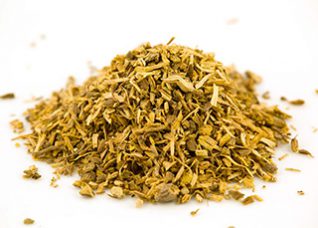
MinerAlert

MinerAlert
Piper methysticum Forst.
Awa, kawa, kew, tonga, yangona.

Roots and rhizomes (underground stems).
Kava denotes both the plant and the drink prepared from its roots. The beverage is prepared by chewing or crushing the plant’s root and is used by the Polynesian natives in important ceremonies and reunions. Currently, capsules, extracts and other products containing kava a re also available.
According to some authors, kava is traditionally employed in various areas of the South Pacific as an “ice breaker” in marriages, welcoming ceremonies and other important events, because of its socializing and calming effects. This may be compared to the use of alcohol in western society, but with the main difference being that the use of kava is not related to violent acts as compared to the consumption of alcohol. Aside from its relaxing effects, kava has been used by native peoples of the South Pacific for various ailments, ranging from venereal disease to skin infections. In external applications it is reported to exert an antimycotic (stops the fungus from reproducing) effect on the skin. Kava has been used successfully in Europe for many years for the treatment of various disorders, including urinary tract infections, anxiety, menopause and as a muscular relaxant. In contrast to the effects of pharmaceutical drugs with sedating action, kava is reported to elicit relaxation, but with an alert and relaxed mental state. In various controlled studies, kava has been declared effective in reducing anxiety without showing some of the negative side effects such as “hangover effect” and depressed cognitive function manifested by some of the conventional sedatives. There is clinical evidence that kava may be of value, principally in the treatment of non-psychotic anxiety and depression. Unfortunately, some people have abused kava containing products, employing them for “recreational activities” not necessarily related to the herb’s medicinal applications.
Safety/Precautions:
Before you decide to take any medicinal herb or herbal supplement, be sure to consult with your health care professional first. Avoid self-diagnosis and self-medication: Always be on the safe side!